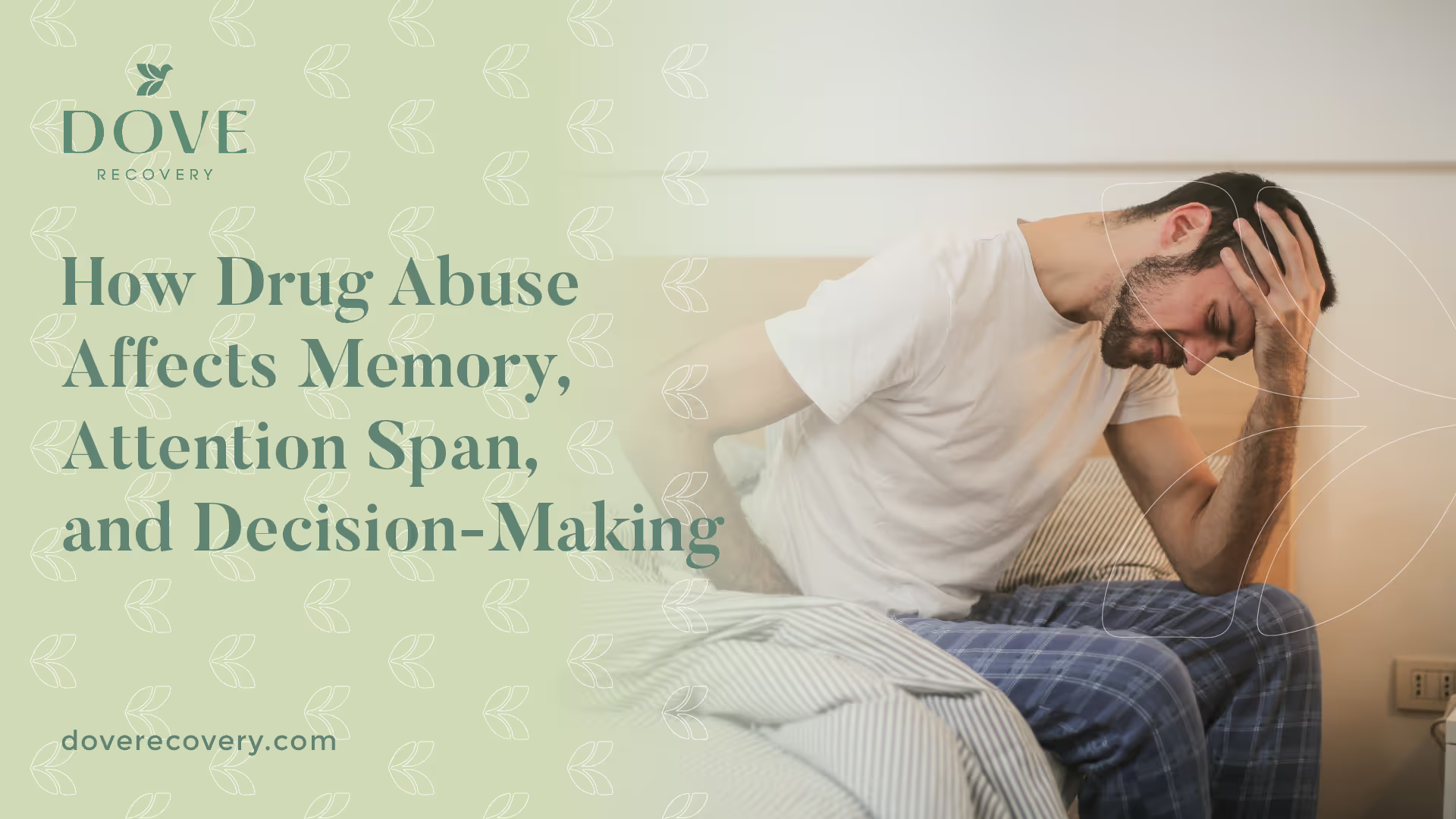Effects of Drug Misuse And Addiction

Effects of Drug Abuse and Addiction
Drug misuse is a serious issue that affects millions of people around the world. It can have devastating effects on both the individual and their loved ones.
Drugs can be highly addictive, and once a person becomes dependent on them, it can be incredibly difficult to break the cycle. In this article, we'll take a closer look at the effects of drug abuse on the human body and mind.
One of the most immediate effects of drug misuse is the high that comes with taking drugs. This high can be incredibly pleasurable and can lead to a sense of euphoria.
However, these feelings are short-lived, and the after-effects can be quite unpleasant. Many drugs can cause physical side effects, such as nausea, vomiting, and headaches. Some drugs can also cause a person's heart rate and breathing to slow down, which can be dangerous.
The Different Types of Drugs and Their Effects

As mentioned earlier, psychoactive drugs can be broadly categorized into four classes: depressants, stimulants, hallucinogens, and opioids. Each class of drug has its own unique effects on the body and mind.
Depressants
Depressants slow down the central nervous system, which can lead to feelings of relaxation and reduced anxiety. However, they can also cause drowsiness, impaired coordination, and slowed breathing. Here are some examples of commonly abused depressants:
- Alcohol
- Benzodiazepines (such as Valium)
- Barbiturates
Stimulants
Stimulants speed up the central nervous system, leading to increased energy levels and alertness. They can also cause feelings of euphoria and confidence. However, they can also lead to increased heart rate and blood pressure, as well as paranoia and aggression. Here are some examples of commonly abused stimulants:
- Cocaine
- Amphetamines (such as Adderall)
- Nicotine
Hallucinogens
Hallucinogens alter a person's perception of reality by changing the way that their brain processes information. They can cause visual or auditory hallucinations, as well as changes in mood or thought patterns. However, they can also cause anxiety or panic attacks in some people. Here are some examples of commonly abused hallucinogens:
- LSD (acid)
- Psilocybin mushrooms (magic mushrooms)
- MDMA (ecstasy)
Opioids
Opioids are painkillers that work by binding to receptors in the brain to reduce the sensation of pain. They can also cause feelings of euphoria and relaxation. However, they are highly addictive and can lead to respiratory depression or overdose if taken in large doses. Here are some examples of commonly abused opioids:
- Heroin
- Prescription painkillers (such as OxyContin)
- Fentanyl
The Effects of Drug Misuse on Health
Drug misuse can have both short-term and long-term physical effects. Here are some examples:
Short-term physical effects
Here are some common short-term physical effects of drug misuse:
- Nausea
- Vomiting
- Headaches
- Dizziness
- Blurred vision
These symptoms can occur with many different drugs and are often a sign that the body is reacting to a substance.
Long-term physical effects
- Liver, heart, lung, and brain damage: Long-term drug misuse can cause damage to many vital organs in the body. This can lead to serious health complications such as liver disease, heart disease, lung cancer, and brain damage.
- Tooth decay and skin sores: Methamphetamine use can cause tooth decay and skin sores due to its impact on personal hygiene habits.
- Collapsed veins and bowel issues: Heroin use can lead to collapsed veins from injection use or bowel issues from constipation.
Mental Effects of Drug Misuse
Drug misuse can have significant effects on an individual's mental health, including:
Depression and anxiety
Prolonged drug use can lead to chemical imbalances in the brain, which can result in symptoms of depression and anxiety.
Paranoia and hallucinations
Certain drugs such as LSD and amphetamines can cause hallucinations and delusions, leading to paranoia or even psychosis.
Impaired judgment and decision-making skills
Drug misuse can impair an individual's ability to make sound decisions, leading to poor choices that can negatively impact their life.
Memory loss and cognitive impairment
Long-term drug misuse can lead to memory loss and cognitive impairment, making it difficult for individuals to perform daily tasks or maintain relationships.
Impact of Drug Abuse on Behavior
Drug abuse can have significant impacts on a person's behavior, leading to aggression and risky behavior. Here are some examples:
Changes in mood and decision-making abilities
Many drugs can cause changes in the brain that affect an individual's mood and decision-making abilities. This can lead to impulsive or reckless behavior.
Aggression and violence
Individuals who misuse drugs may become more aggressive and prone to violence. For example, excessive alcohol use can lead to aggressive outbursts and fights.
Risky behavior
Some people who use cocaine or amphetamines may experience feelings of invincibility, leading them to engage in dangerous activities such as driving under the influence or participating in high-risk sexual behaviors.
Social isolation
Drug abuse can also impact a person's ability to function normally in social situations. Individuals who misuse drugs may become withdrawn and isolated from friends and family members.
It is important to seek help for drug addiction as soon as possible to prevent further harm to an individual's health and well-being. Through treatment programs such as therapy, medication-assisted treatment, and support groups, individuals struggling with drug abuse can learn healthier coping mechanisms and develop strategies for avoiding relapse.
How Drug Abuse Affects Memory, Attention Span, and Decision-Making Abilities

Drug abuse can have profound effects on a person's cognitive abilities. Studies have shown that drug misuse is associated with decreased attention span, memory loss, and poor decision-making skills. Here are some examples of how different drugs can affect cognitive function:
- Cocaine and methamphetamine can lead to overstimulation of the brain, which can cause damage to neurons responsible for cognitive functions such as attention span and memory.
- Chronic alcohol use has been shown to cause shrinkage in certain areas of the brain responsible for memory formation and decision-making.
- Opioids such as heroin or prescription painkillers can cause sedation and impair cognitive function.
Long-term drug use can also lead to changes in the structure and function of the brain. For example, chronic alcohol use has been shown to cause shrinkage in certain areas of the brain responsible for memory formation and decision-making.
Drug abuse can also lead to impaired judgment, making it difficult for individuals to make sound decisions. This may result in risky behavior such as driving under the influence or engaging in criminal activity.
In addition to affecting cognitive abilities directly, drug abuse can also impact an individual's ability to learn new information. This can make it difficult for individuals struggling with addiction to seek help or engage in treatment programs effectively.
What Are The Treatment Programs For Drug Misuse?

Drug abuse treatment programs are designed to help individuals overcome their addiction and lead a healthier, more fulfilling life. These programs can take many different forms, from inpatient rehab facilities to outpatient counseling services. Here are some examples of commonly used drug abuse treatment programs:
Inpatient rehab
This type of program involves living at a facility for a set period of time while receiving intensive therapy and medical care.
Outpatient counseling
This type of program allows individuals to attend therapy sessions on a regular basis while still living at home and maintaining their daily routine.
Medication-assisted treatment (MAT)
This type of program uses medication to help individuals manage withdrawal symptoms and cravings while they work on overcoming their addiction.
Support groups
Support groups such as Alcoholics Anonymous (AA) or Narcotics Anonymous (NA) provide individuals with a supportive community of people who have gone through similar struggles.
Cognitive-behavioral therapy (CBT)
CBT is a type of talk therapy that helps individuals identify negative thought patterns and develop healthier coping mechanisms.
It's important to find the right treatment program for each individual's needs, as everyone's journey towards recovery is unique. With the right support and resources, however, it is possible to overcome drug addiction and lead a happy, healthy life.
What Are The Risk Factors For Drug Misuse?
What are the risk factors for drug misuse? While anyone can become addicted to drugs, there are certain factors that can increase a person's risk. Some common risk factors include:
Family history
Individuals with a family history of drug abuse or addiction may be more likely to develop an addiction themselves.
Mental health issues
People who struggle with mental health issues such as depression, anxiety, or ADHD may be more likely to turn to drugs as a form of self-medication.
Peer pressure
Social influences can play a significant role in whether or not someone tries drugs. People who spend time with others who use drugs are more likely to try them themselves.
Trauma
Individuals who have experienced trauma such as physical or emotional abuse may turn to drugs as a way of coping with their pain.
Lack of parental supervision
Children and teenagers who grow up without strong parental supervision may be more likely to experiment with drugs.
Poverty and unemployment
People living in poverty or experiencing unemployment may turn to drugs as a way of coping with stress and hardship.
It's important to remember that having one or more risk factors does not guarantee that someone will develop an addiction. However, being aware of these risk factors can help individuals make informed decisions about their behavior and seek help if necessary.
How To Break Free From Drug Misuse?
Breaking free from drug misuse can be difficult, but it is possible with the right support and resources. Here are some examples of strategies that can help individuals overcome addiction:
Seek professional help
A qualified therapist or counselor can provide individuals with the tools and support needed to overcome addiction. They may recommend a treatment program or individual therapy sessions to help address underlying issues that may contribute to drug misuse.
Join a support group
Support groups such as Alcoholics Anonymous (AA) or Narcotics Anonymous (NA) provide individuals with a supportive community of people who have gone through similar struggles. These groups can offer guidance, accountability, and encouragement throughout the recovery process.
Develop healthy coping mechanisms
Many people turn to drugs as a way of coping with stress or emotional pain. Developing healthy coping mechanisms such as exercise, meditation, or creative activities can provide alternative ways to manage difficult emotions.
Avoid triggers
Certain situations or people may trigger the urge to use drugs. It's important for individuals in recovery to identify their triggers and develop strategies for avoiding them whenever possible.
Stay connected with loved ones
Maintaining strong relationships with friends and family members can provide a sense of purpose and connection that may help prevent relapse.
Practice self-care
Prioritizing self-care activities such as getting enough sleep, eating nutritious foods, and engaging in regular physical activity can improve overall well-being and reduce the risk of relapse.
By implementing these strategies, individuals struggling with drug misuse can take steps towards breaking free from addiction and leading a healthier, happier life.
Conclusion
Drug misuse is a complex issue that affects individuals, families, and communities. It has far-reaching physical, mental, and social effects that can be devastating for those struggling with addiction. However, there is hope. With the right support and resources, it is possible to overcome drug addiction and lead a healthy, fulfilling life.
It's important to recognize the risk factors for drug misuse and take steps to prevent addiction before it starts. This includes seeking help for mental health issues, avoiding peer pressure, and building strong relationships with family and friends.
For those who are already struggling with addiction, treatment programs such as inpatient rehab or outpatient counseling can provide the support needed to overcome addiction. Through therapy, medication-assisted treatment, and support groups like AA or NA, individuals can learn healthier coping mechanisms and develop strategies for avoiding relapse.
Sources:
- National Institute on Drug Abuse. (2021). DrugFacts: Understanding Drug Use and Addiction. Retrieved from https://www.drugabuse.gov/publications/drugfacts/understanding-drug-use-addiction
- Mayo Clinic. (2021). Drug addiction. Retrieved from https://www.mayoclinic.org/diseases-conditions/drug-addiction/symptoms-causes/syc-20365112
